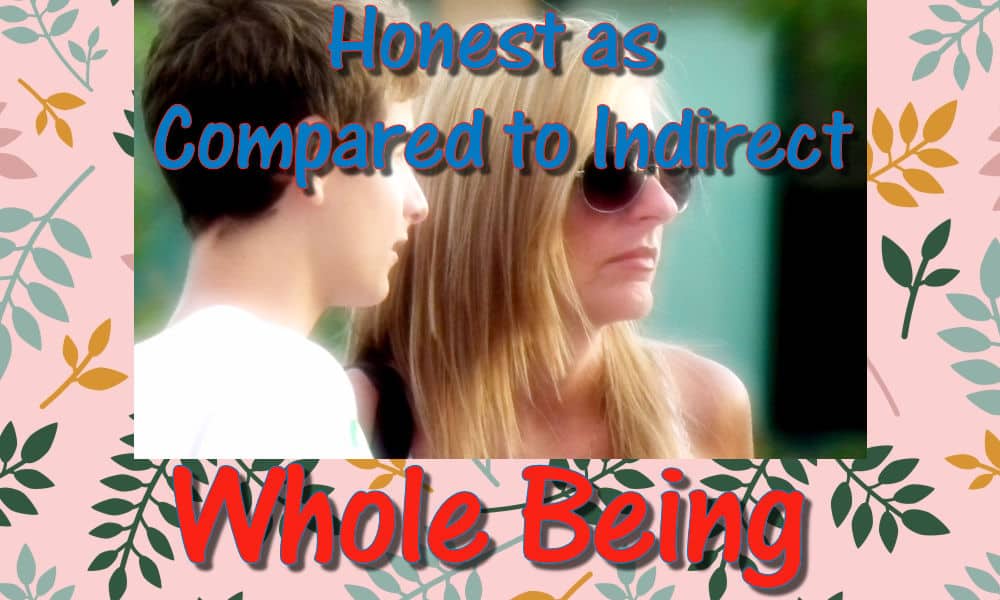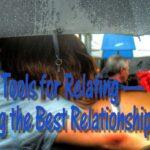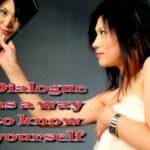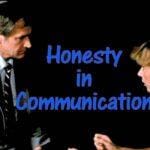- Focussed as compared to scattered — Whole Being
- Awake as Compared to Asleep — Whole Being
- Responsive as Compared to Reactive — Whole Being
- Self-centered as Compared to Selfish — Whole Being
- Honest as Compared to Indirect — Whole Being
- Passionate as compared to Charged — Whole Being
- Awareness as compared to Non-awareness — Whole Living
- Flexible as compared to blocked — Whole Being
- Having Integrity — Truthful as Compared to Devious — Whole Being
Honest as compared to indirect — we think that hedging or being polite is politically correct. What we end up with is a dishonest life.
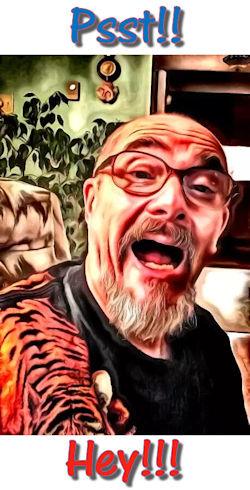
Psst!! Hey!!!
** Want more great writing designed to help YOU to shift your behaviour?
** Want to learn how to find, build or deepen your principal relationship?
** Want to know more about Zen living and being?
Check out Wayne’s books! (amazon link)
Or, check them out right on our site.
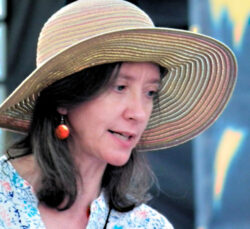
Here’s a client story from back a ways:
I had a client with fibromyalgia; her physician referred her.
He thought I might be able to help her to choose to feel better, as all the the medical interventions he’d tried — drugs and pain relieving salves and sleeping pills — weren’t doing much.
When she first came in, she let me know quite clearly that she wasn’t sure I could do anything for her; she wasn’t even sure why she was there.
I agreed that I didn’t know why she was there either. I also agreed that there was absolutely nothing that I could do for her.
I wondered if she’d be interested in learning to do something for herself. Her interest piqued, and she decided to stay and try a session.
We had a long talk about illness. I said that I thought that most illness was psychosomatic in origin. Now, psychosomatic simply means, “having bodily symptoms that are of mental or emotional origin.”
It doesn’t mean “imaginary,” nor is it a “mental illness.”
I was not laying “blame” — not blaming her for giving herself fibromyalgia. It’s just that people are rigid thinkers.
- We get it in our heads that since our parents were a certain way, we have to be the same.
- Or, we’re told we are frail, or prone to something, and we develop it.
- Or, we don’t listen to the voice of our bodies, so our bodies have no other choice than to speak louder. And the chief voice of an unheard body is pain.
Zen guy that I am, I figure that first we “simply notice”, and then we shift behaviours.
Toward the end of the first session my client told me she was about to fire me — because she really didn’t like the idea that she gave herself fibromyalgia.
Again, that’s not what “psychosomatic” implies, nor was it what I said.
I explained that I thought she’d been ignoring her body — not dealing with her feelings and emotions — because she was “too busy looking after everyone else.”
So, her body decided to get her attention.
Think about it — fibromyalgia is a disease whose only symptom is pain — one’s body screams, “Pay attention to me!”
She couldn’t imagine that this was what was going on. So, because what I said flew in the face of her belief system, I had to go.
Except that, prior to her actually firing me, I said something about self-focus and self-responsibility that she “got,” so she decided that I’d earned a one session reprieve.
I was pleased with her honesty, (about her process, her intention to fire me, everything…) and told her so.
She really wanted to let me know where she was coming from — and that she didn’t “get” everything I was saying. She figured that, despite her illness getting worse instead of better, surely my suggestion that a dose of self-responsibility and self-centeredness (see this topic here) couldn’t make things better.
I said that this was precisely what I thought would happen.
I also said,
“Maybe, just because you’ve spent your life being “other-centred” as opposed to self centred, your body decided to yell, “pay attention to me!” and did so through the voice of fibromyalgia. Maybe you need to spend as much time working on yourself as you do sticking your nose into what everyone else is doing!”
I could have focused on politically correct language — congratulated her on her insight and agreed that I’d overstated my case. Or, I could have apologized for saying something she didn’t want to hear.
Either of these approaches would have been indirect or deceitful. Instead, I went for honesty.
I wanted to clearly state my perspective — here is where I stand and here is what I believe is going on.

To be perfectly blunt, when others have issues, I am never curious about how they set up their lives — or what they believe — because their belief systems contribute to their medical and emotional distress.
If I’d listened to my client’s beliefs, all she would have been able to “teach me” was how to end up with fibromyalgia. I was not interested in learning how to do that.
Nor was I interested in others teaching me about how to be “other-centred.”
I focused on the person in front of me. I taught self-responsibility — what the person in front of me could do, how they might live their lives differently.
I focussed on helping others find ways that were substantially different from what they’d been doing. I didn’t want to pussyfoot around and be subtle.
I described what I saw, and explained that what I saw was a problem with their approach.
This direct approach, while blunt, is never cruel.
I learned this approach from Gloria Taylor, who was my therapist and supervisor. Two illustrations of her straight to the mark approach.
- I was whining about how hard my life was and how things were not working out. Gloria said, “I just got a book that explains how to sort out this kind of stuff. All you have to do is read it and follow the author’s suggestions, and you will be fine.” She then handed me This Endless Moment– my own book. That was an amazingly direct piece of therapy.
- I’d be endlessly complaining about something or another that I’d gotten myself stuck in. Gloria would shake her head and say, “Cute, but stupid.”
This is honesty in the extreme.

Now, let me say quickly, before some of you, (and you know who you are!) decide this is license to be jerks about this — that honesty is not the same as being a know-it-all smart-ass.
It’s not about how to speak the truth so you’ll be considered the most sarcastic ( or smartest) person in the room. Nor is this about being guru-like.
Honesty is simply speaking the truth directly, as opposed to being cute, evasive or obscure.
Oh, and you only speak honestly to people who will listen. Others, who aren’t interested in your truth, can be ignored or fired. Plain and simple.
So, isn’t it arrogant to think I might know “the truth?”
I think not. Experience tells me a lot, and intuition tells me the rest. And in the end, I’m directly and clearly stating that I am only stating “my” truth. This is the world, as I see it.
Like these articles. This is my forum. This is a short course in “welcome to Wayne’s world.” If what I say doesn’t ring true for you, fire me. On the other hand, if you want to dialogue, drop me a line.
All too often, we make the choice not to speak the truth, as we think the consequences of not saying what needs to be said are better than the ones that will arise if we are honest. We end up feeling miserable as we stuff what needs to be said.
Then, we get to feel like a martyr, which seems somehow noble. Much like whacking oneself repeatedly with a ball-peen hammer is noble.
Thank you, but no. Honesty and integrity go hand in hand. I need to have internal consistency if I am ever going to live a balanced life.
I need to be willing to see and hear anything without judgement, but at the same time be willing to speak honestly about what I see. I speak from the perspective of whether “whatever it is” works, not whether “it” is right or wrong.
If it doesn’t work, the only solution is to change it. That takes both honesty and courage.
This week, think about what needs to be said, both to yourself and to your nearest and dearest. Then, start with yourself, and call a spade a spade. You’ll be ahead, in the end, by always opting for honesty.

